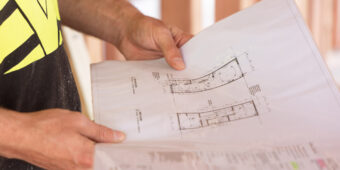IRD offers guidance for builders in debt
17 Nov 2025, Business Tips, Employer Advice, Finances

We’ve all seen, and been concerned about, the media talking about the number of liquidated businesses, including many in the trades. Inland Revenue has increased its debt collection activity, and that’s leading to more liquidations. This article, written by the Inland Revenue, gives some insight into the debt situation for those involved in building houses, and provides strategies to manage tax obligations effectively
The financial picture is sobering. According to Inland Revenue data, one in five businesses or contractors involved in building houses has overdue tax debt. The average amount of that debt is over $20k. In total, this is more than $280m in unpaid taxes – a lot of which is PAYE and GST, which Inland Revenue has indicated they are focused on recovering.
Inland Revenue has also significantly increased its investigations and auditing; however, the department says its focus is on those who are actively trying to avoid their taxes – rather than the majority of builders who are trying to do things right.
More than 1,000 tip-offs received
Sometimes action is instigated due to tip-offs received. Inland Revenue has received more than 1,000 tip-offs about builders. These come from a range of sources, including:
- Clients saying the builder wanted to be paid in cash, and they suspect it won’t be reported as income.
- Ex-employees complaining about the use of cash to pay migrant labour under the table, while not paying PAYE (this is often identified when one of those employees needs proof of income, and Inland Revenue has no record of it).
- A person who knows a lot about a builder, and how they spend their money – detailing holidays or large private expenses that don’t seem to match their income.
Poor record keeping often to blame
For the most part, when builders get in difficulty with debt, it’s often because the builder hasn’t kept up with their record keeping or when cashflow management has become a challenge. Inland Revenue understands provisional tax can be hard to get right sometimes, but if GST and PAYE isn’t being passed on, builders should consider seeking financial advice, as not paying PAYE is a criminal offence with some potentially severe consequences.
Inland Revenue has recently published some easy-to-understand advice on how people in the trades can stay out of trouble via ird.govt.nz/the-tax-toolbox.
How to deal with tax debt
If anyone is struggling to pay tax debts right now, Inland Revenue is willing to help. Options available include:
- Setting up an instalment arrangement to pay the debt off over time – this can be done by going to your myIR account and selecting ‘Request an instalment arrangement’ under the ‘I want to …’ column.
- If there’s no way a debt can be paid off, talk to your accountant as they may be able to negotiate something with Inland Revenue, or provide other options for managing the debt.
If you’re concerned about being able to meet tax obligations, the key is to act early rather than hoping the problem will resolve itself when things get better. Inland Revenue is willing to work with businesses that engage proactively about their situation. So, if you do find yourself in difficulty, the key is that the sooner you reach out – whether directly or through your accountant – the more options will likely be available.
This article was written and supplied to PlaceMakers by the Inland Revenue Department.
Register to earn LBP Points Sign in
1 Comment
Leave a Reply
You must be logged in to post a comment.




IRD should be there to help, when a client doesn’t pay things can get hard really quick. Reach out.